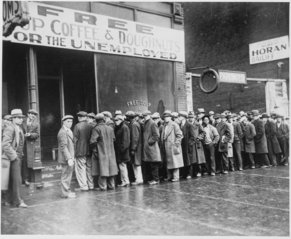
Free Markets
Free markets for labor, goods, services and investments. People are granted the economic freedom to start businesses and pursue professions as they see fit. Firms must produce the goods that people want at a competitive price to survive. Free markets are known to be efficient and can create significant wealth.Property Rights
Social market economies implement strong property rights including rights on intangible property such as trademarks and patents. This is the basis for economic competition, innovation and advancement as if you work hard to produce something, you get to keep it.Free Trade
Social market economies are typically developed nations that seek trade agreements to benefit from comparative advantage and gains from trade.Welfare State
Public services such as free healthcare and education that provide a reasonable quality of life and social safety net.Wealth Redistribution
A progressive tax system that taxes the upper class and middle class to fund the welfare state.Labor
Strong employment laws to protect employees and labor unions.Environment
Strong environmental laws to defend quality of life and reduce major risks to a society.Consumer Protection
Consumer protection related regulations and governance such as agencies that are supposed to make sure medications and agricultural chemicals are safe. It is also common to implement product safety regulations and protections against unfair commercial practices.Open Competition
Rules and enforcement that ensure that markets are fair and competition is lively. For example, a social market economy may break up monopolies and fine firms for anti-competitive practices.Infrastructure
Social market economies are mostly highly developed and complex societies that require significant soft and hard infrastructure. In many cases, the government plays a role in building out infrastructure such as hospitals, research institutes, transportation infrastructure, water infrastructure, green energy and IT infrastructure.State Capitalism
In some cases, social market economies directly interfere with free markets by buying and controlling profit-seeking firms. In some cases, this is done to ensure that a firm provides universal services to an entire nation such as a postal service that must serve remote communities whatever the cost. In other cases, nations buy failing firms that are "too big to fail" or purchase failing firms simply to try to save jobs. This creates zombie firms that are inefficient but can use their resources to prevent new stronger firms from entering markets. In other words, this prevents creative destruction.Administrative Burden
Social market economies tend to have a lot of well-intended regulations that can place a burden on business, particularly small business, such that economic activity may suffer.Tax Burden
Some social market economies have a high tax burden that impacts economic performance and growth. In theory, if investments in education, healthcare and infrastructure yield a strong economy, this need not be the case. Another key factor is the efficiency of the government and levels of corruption in a society.| Overview: Social Market Economy | ||
Type | ||
Definition | A free market system that uses tax revenue to provide a basic quality of life for all members of a society. | |
Also Known As | Socialist Market EconomyMarket Socialism | |
Related Concepts | ||































